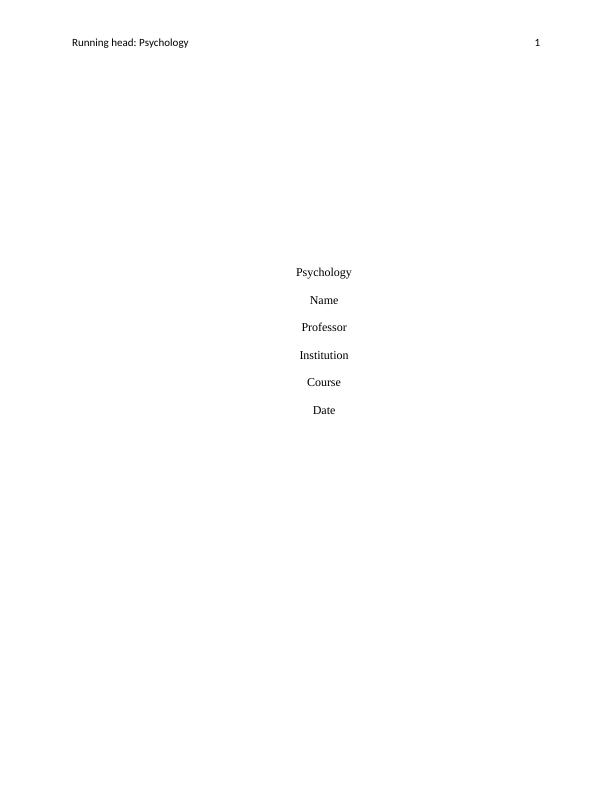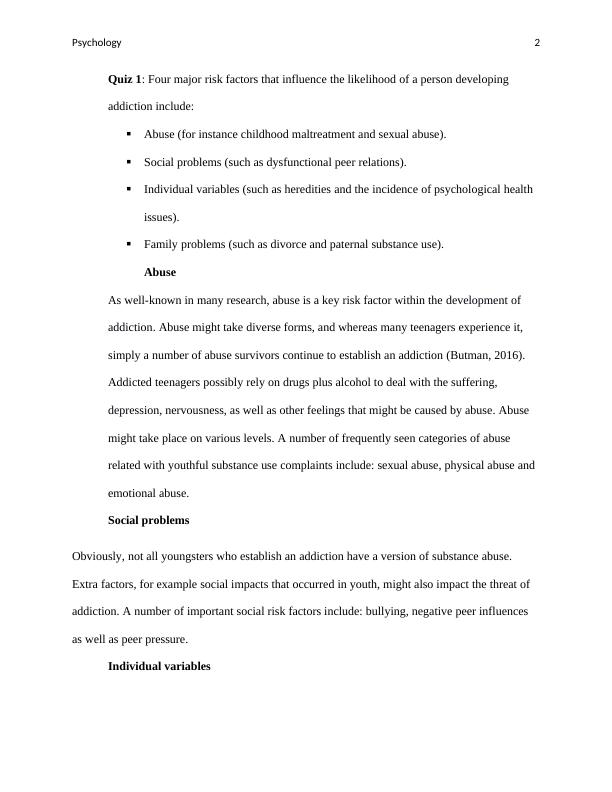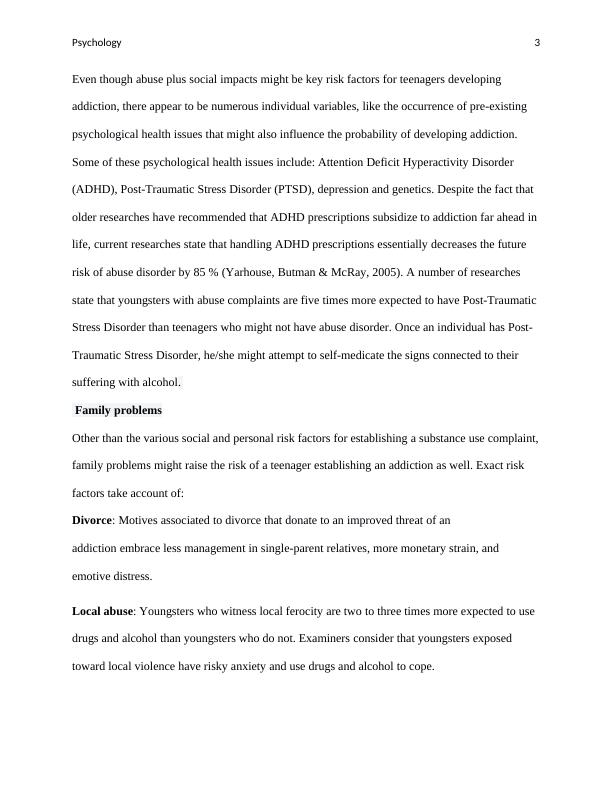Psychology
Added on 2023-03-17
7 Pages1571 Words57 Views
End of preview
Want to access all the pages? Upload your documents or become a member.
Understanding the Role of Media in Drug Culture: A Psychological Perspective
|16
|1478
|85
ASSIGNMENT Name of the University Author note PSYCHOLOGY ASSIGNMENT Name of the Student Name of the University Author note PSYCHOLOGY ASSIGNMENT Name of the University Author note PSYCHOLOGY ASSIGNMEN
|3
|488
|154
Understanding the Role of Media in Drug Culture: A Psychological Perspective
|10
|2836
|415
Assignment on Addiction in Teenagers
|12
|1994
|22
Adolescence: Issues, Factors, and Interventions
|6
|1223
|215
Prevention Program for Population & Addiction
|9
|680
|434


